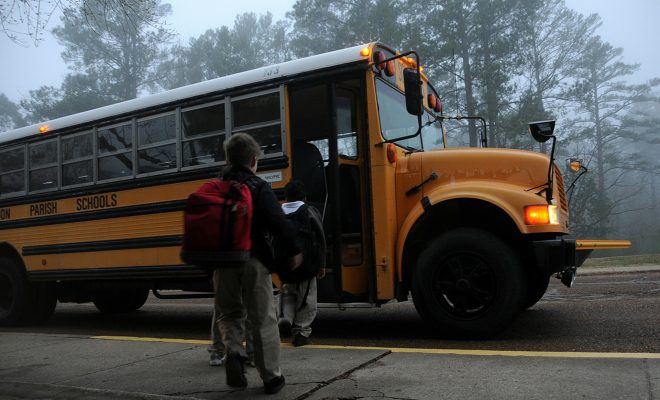Sex education: Time for a revolution (as well as evolution)

By Khaula Mazhar
**The Edvocate is pleased to publish guest posts as way to fuel important conversations surrounding a P-20 education in America. The opinions contained within guest posts are those of the authors and do not necessarily reflect the official opinion of The Edvocate or Dr. Matthew Lynch.**
“We can’t solve problems by using the same kind of thinking we used when we created them.” Albert Einstein
Thousands of Canadian parents have been voicing their concerns over the recently revised sex education curriculum in Ontario. They were unpleasantly astonished at the very graphic details proposed to be introduced to children starting right from grade one. Even the Premier of Ontario has claimed the new standards promote the teaching of “enthusiastic sexual consent.” The parents have some very valid concerns. Why are their rights as parents to be first educators being taken from them? And what studies have been done to prove that introducing graphic sex at such a young age is going to help overcome the burgeoning problem of underage sexual activity?
it is true that research has shown that introducing sex at a young age sexualizes children prematurely. And yet our children are bombarded with sex from every direction. In the television programs they watch, in the books and magazines they read, the video games they play, the music they listen to, on the school grounds and now in the classrooms. We see the negative results around us all the time in the form of pedophilia and other types of sexual abuse, an increase in the spread of STIs/STDs and promiscuity among the youth. Our kids are becoming sexually active earlier. So far sex education hasn’t been successful in saving our children from any of this. So how does this justify teaching an even younger age group about sex? At this rate we will be teaching kids about sex via flash cards while they are still in their cribs.
That is not saying sex education is not needed. It is needed, very much, but a serious evaluation is needed as well. We are doing it all wrong. Curriculum developers need to start using some common sense and look into what is working for other countries. Looking at North American kids today we see high rates of STIs/STDs, unwanted pregnancies and abortions with a decrease in basic academic skills. These kids should be engaged in more constructive activities rather than becoming ugly statistics. Forty-eight percent of all STIs/STDs occur in youth 15 to 24 years of age. Don’t our children deserve better?
In countries with a low tolerance for premarital sex, like Pakistan, India and Saudi Arabia there are also low stats for teen pregnancies, STIs/STDs and under age sex. Sex education is tackled in higher grades like grade eight (in case of O-Level schools or not at all in other cases) and it is taught as part of the science curriculum; human reproduction. The rest is taught by the family when the child is mature enough to deal with that information responsibly. Traditional values of morality are instilled in children from a young age and children are monitored well by concerned family members, so that children are not left alone to experiment. It has been proven from studies that children with a strong supportive family do well academically and abstain from risky behaviors involving drugs, alcohol and sexual intercourse.
These looked down upon “backward” moral values protect children from exposure to the overly sexualized culture we have here in the west. Yes it may be old fashioned, but it works. At least it has up until recent years. With the introduction of the “Dish” (dish antenna) the previously uninformed youth have slowly been introduced to a whole new world. And that world is full of sex. Today, the problems that have long afflicted western youth are now beginning to show up within the eastern youth as well, though still not in such catastrophic proportions. Even with all that information, kids with supportive families are still steering away from risky behavior.
The media has crept into our lives and slowly taken over to the point where many of us have simply given in, with the easiest excuse; we can’t stop progress. However we do have to assess whether or not this is actually progress or going back to archaic times. Shouldn’t progress mean improving the standard of living? Statistics show increased depression, mental disorders, suicide, abortions and STI/STDs. This doesn’t fit the description of progress.
Looking at the television shows, movies, games, books and even toys that are provided for children today it isn’t hard to see why our children are becoming obsessed with sex. It has been glamorized, encouraged, it is the thing to do. Sex is the way one discovers oneself. As though this is the only potential human beings have, the media paints sex as some level of enlightenment. The media message is clear; “have sex, lots of it, and if someone tells you to abstain they are clipping your wings. Rebel.”
The media doesn’t care about responsibility, morality, accountability or values. Sex is fun and that’s it. Cheap gratification with no repercussions. Our sex education curriculum are not equipped to counter these messages. This is basically where the problem lies, in plain sight, but what we are failing to recognize or ignore in our quest to prove to ourselves and to the world that we are not backward. As though going back to something ‘outdated,’ even if it works, will somehow knock us off that pedestal of so-called progress.
Schools are becoming more secular, focus is less and less on morality or values. Without teaching children that accountability is important, how can we expect them to make the right decisions? Ontario’s recently updated sex ed curriculum is an excellent example of just where we are heading. Masturbation is included as a “teacher prompt” in the section of Grade 6 curriculum discussing changes that occur during adolescence.
“Exploring one’s body by touching or masturbating is something that many people do and find pleasurable,” the teacher prompt says. “It is common and is not harmful and is one way of learning about your body.”
Grade seven and eight lessons include oral and anal sex as options to avoid unwanted pregnancies. Nowhere is there any mention of responsibility, fidelity, love or trust. The traditional family is now questioned, values are obsolete. Chaos prevails. When will we be ready to make a change? The onset of puberty is coming earlier and earlier, research has linked sexual imagery in the media as one of the culprits. The problem is not the problem, the problem is our solution to the problem.
The few people brave enough to speak out on this subject and point out practical solutions are either ignored or bullied into silence. There is an excellent article by Edward C. Green about how churches in African countries are successfully helping prevent AIDS by educating with fidelity programs. Not something people feel comfortable with anymore, fidelity. What does that say about us? It is time we evolve and move out of this regression we have fallen into. Our children are not animals whose only instincts are to eat and mate.
If a small child, enticed by the brilliant flames of a fire, insists on putting his hands in do we hand him a flame proof glove and let him experiment? We patiently explain how it will hurt him, we tell him the consequences. And then we put the fire out. We need to equip parents and the schools with the knowledge they need to teach kids values, accountability and consequences. Educated concerned parents are the key to well rounded intelligent kids who will have the tools to make the right decisions. We need to educate the parents first. Rather than teaching six-year olds about sexual consent, the focus should be on informative workshops for parents.
Then we need to work together to put the fire out. If Hershey’s can drop GMOs from their products to please their customers, can’t the media reduce the amount of sex they are pushing on our children? We are the customers, they will bend over backwards to please us if we can leave our comfort zones to work together for the sake of our children.
Although it would be a long, hard process it can be done and our kids are worth everything we put into it. A revolution in sex education is badly needed, a moral revolution.
—-
Khaula Mazhar, children’s book author, has a ten year teaching experience from Pakistan where she also wrote for Dawn Newspaper. After moving back home to Canada she continues to pursue her writing when she can. She blogs at Blog Her, MuslimMoms.ca and writes articles for Examiner.com.






